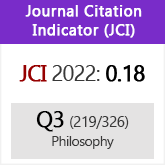The young Foucault and the critique of psychological reason: On the origins of Madness and Civilization
DOI:
https://doi.org/10.3989/isegoria.2009.i40.647Keywords:
Michel Foucault, psychopathology, psychology, psychiatry, history of madnessAbstract
Taking into account the wide influence and the germinal role of Madness and Civilisation (1961) in the development of Michel Foucault’s thought, and in order to clarify its theoretical background and its complex genesis, this article provides an analysis of the early writings of the French philosopher on the problems of psychiatry and psychology. First, I examine his position concerning the conceptual assumptions of mental medicine and the shortcomings he detected in the main currents of psychopathological thought (basically, evolutionism, psychoanalysis, and phenomenology). Afterwards, I describe his first attempt to outline a global interpretation of the phenomenon of mental illness from a social and cultural standpoint resorting to Marxist alienation theory and Pavlovian reflexology. And, finally, I show how some of the most significant elements and insights that, within a short time, would crystallise and find a final form in Madness and Civilisation, were gradually shaped along his production of those years.
Downloads
Download data is not yet available.
Downloads
Published
2009-06-30
How to Cite
J. Novella, E. (2009). The young Foucault and the critique of psychological reason: On the origins of Madness and Civilization. Isegoría, (40), 93–113. https://doi.org/10.3989/isegoria.2009.i40.647
Issue
Section
Articles
License
Copyright (c) 2009 Consejo Superior de Investigaciones Científicas (CSIC)

This work is licensed under a Creative Commons Attribution 4.0 International License.
© CSIC. Manuscripts published in both the printed and online versions of this Journal are the property of Consejo Superior de Investigaciones Científicas, and quoting this source is a requirement for any partial or full reproduction.All contents of this electronic edition, except where otherwise noted, are distributed under a “Creative Commons Attribution 4.0 International” (CC BY 4.0) License. You may read here the basic information and the legal text of the license. The indication of the CC BY 4.0 License must be expressly stated in this way when necessary.
Self-archiving in repositories, personal webpages or similar, of any version other than the published by the Editor, is not allowed.














